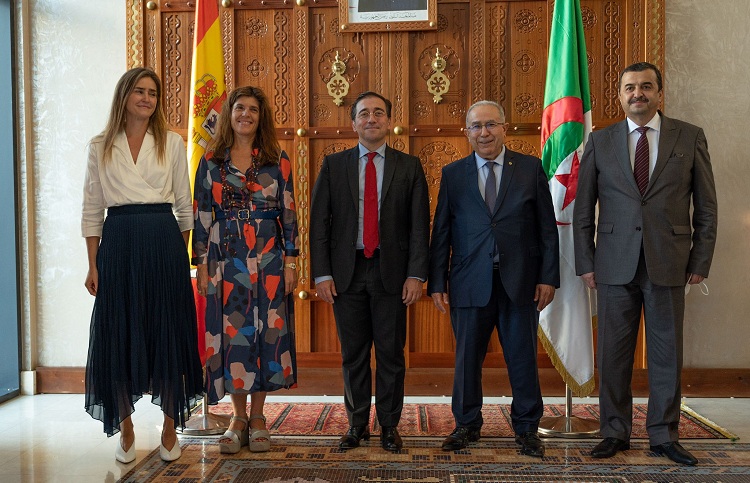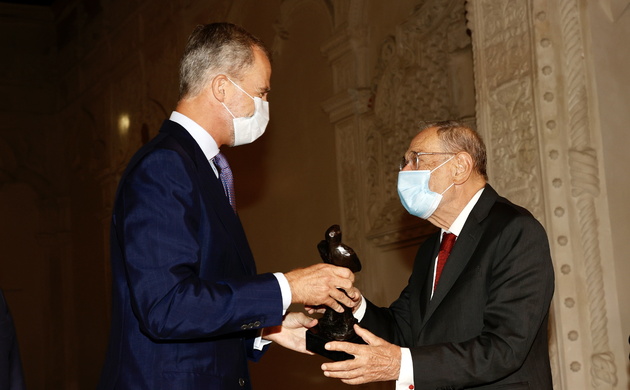Eduardo González
The Spanish Minister of Foreign Affairs, José Manuel Albares, received yesterday the “guarantee” from Algeria to maintain the supply of gas and to “satisfy the Spanish demand” for this product, just one month before the authorities of this country carry out their threat to cut the gas pipeline that crosses Morocco.
“In energy matters, we have received the guarantee of gas supply from Algeria to Spain, as well as the Algerian commitment to satisfy the Spanish demand”, Albares declared in a press conference after meeting with the Minister of Foreign Affairs, Ramtane Lamamra; and with the Minister of Energy and Mines, Mohamed Arkab, on the occasion of his official visit to the Maghreb country.
The head of diplomacy, who was also received by the Algerian president, Abdelamadjid Tebboune, was accompanied by the Secretary of State for Foreign and Global Affairs, Ángeles Moreno Bau; the Secretary of State for Energy, Sara Aagesen; and the presidents of the companies Naturgy, Francisco Reynés, and Enagás, Antonio Llardén.
Albares did not specify whether Algerian gas will continue to reach Spain through the Maghreb-Europe gas pipeline (GME), which crosses Moroccan territory. Algeria has supplied, since 1996, around 10,000 million cubic meters of natural gas annually to Spain and Portugal through the GME. However, the Algerian government has announced that on October 31 it will not renew the contract for the use of the pipeline. The aim of this measure is to cause economic damage to Morocco, which would no longer receive the almost one billion cubic meters of gas it is entitled to annually (more than 97% of its needs) for the right of passage. Rabat and Algiers announced on August 24 the severance of their diplomatic relations following the tension generated by the normalization of relations between Morocco and Israel and Algeria’s support for the Polisario Front in Western Sahara.
In the event that the GME is not maintained, Algeria could supply gas to Spain through the Medgaz undersea gas pipeline, in operation since 2011 and directly connecting the two countries. However, this pipeline already operates at its maximum capacity of 8 billion cubic meters per year, which is equivalent to half of Algeria’s annual exports to Spain and Portugal. Algeria could also ship liquefied natural gas by sea, but this option appears to be very unfeasible from an economic point of view.
Apart from the energy issue, Albares and his Algerian counterpart undertook to hold in Spain, “as soon as possible and with a dense agenda, the High Level Meeting“, the minister explained at the press conference. They also pledged to “intensify the political dialogue that we have at the moment, raising it to the level of Foreign Ministers”, and they agreed to “diversify, expand and enrich the commercial exchange” and reviewed “different sectors, such as shipbuilding, agriculture, renewable energies and tourism, which may be of common interest to both countries”. At the dinner afterwards, the two heads of diplomacy discussed other topics, such as regional affairs and migration.
Previously, Albares was received by President Tebboune, with whom he discussed “the strengthening of bilateral cooperation and its extension to the sectors of renewable energies, agriculture and shipbuilding, in support of the close economic partnership that should be raised to the level of privileged relations between two neighboring countries”, according to the Presidency of the Republic. The meeting was also attended by Ministers Ramtane Lamamra and Mohamed Arkab.







